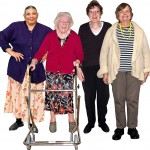
Background NICE (National Institute of Health and Care Excellence) provides guidance and quality standards for health and social care in England. Its evidence-based guidance is produced to support health and social care professionals to ensure that support provided they is of the best possible quality and offers the best value for money. Following a Department [read the full story…]








